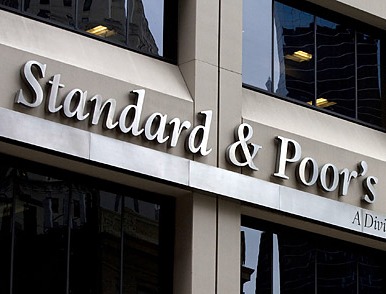
One of the major international support bases for managers of the Nigerians Economy has dealt a heavy blow on the 2014 budget estimates submitted to the National Assembly in December 2013. The rating agency, Standard & Poor’s, which upgraded its rating of the economy to BB-, just three steps below investment level in November 2012 as its currency reserves increased with oil prices and says the economy has a stable outlook has expressed concern that the 2014 budget estimate might have overestimated likely oil output amid increased tensions in the country’s crude-producing regions in the run-up to 2015 presidential elections. In essence, the budget may not be realistic.
“It’s a concern if they have a big rise in pre-election expenditure and there’s a big revision on the oil price or there is a production shortfall due to Niger delta tensions,” Ravi Bhatia, an analyst at S&P, said in a phone interview yesterday from London. “High global oil prices are helping to sustain the picture as it stands now.”
Government is battling rampant oil theft and unrest in the Niger River delta, where most crude is pumped. An agency report notes “while Jonathan has pledged to keep the budget deficit under control, the central bank is bracing for fiscal “shocks” quoting, Governor Lamido Sanusi in a November 2013 interview.
Government spending climbed 17 percent before the 2011 presidential election. The People’s Democratic Party (PDP), which has been in power since military rule ended in 1999, may face its sternest electoral challenge next year, after a series of defections to the main opposition coalition.
Nigerian oil production averaged less than two million barrels a day last year, according to Bloomberg surveys, compared with the 2.53 million barrels the government had predicted.
‘Optimistic’ Estimate
The draft budget for 2014, which hasn’t been passed by the National Assembly, forecasts 2.39 million barrels a day, a figure Bhatia called “optimistic.”
The central bank has blamed “incessant crude-oil theft” for shortfalls in output. Hundreds of spills occur every year both in the Niger Delta and across the country, with pipeline ruptures caused by corrosion, poor maintenance and equipment failure, as well as by thieves and saboteurs.
Nigeria’s proposed budget is also based on an oil price of $77.5 a barrel. West Texas Intermediate crude for February delivery is currently trading at about $93 a barrel.
“A $10 to $15 fall in the global oil price might change the fiscal equation” for Nigeria, Bhatia said. “They are very sensitive to the oil price.”
The federation is supposed to save revenue from oil prices above that level in the Excess Crude Account. The fund was holding less than $5 billion as of October, according to Finance Minister Ngozi Okonjo-Iweala, down from $9 billion at the start of the year.
‘Slight Buffer’
The oil fund has been “drawn down quite significantly,” though it’s still enough to provide a “slight buffer,” Bhatia said.
Nigeria won’t achieve a “substantial increase” in production until it passes the long-delayed Petroleum Industry Bill, Bhatia said. The proposal, which aims to increase the country’s share of profit from oil pumped off its shores, has been stalled in parliament since 2008.
